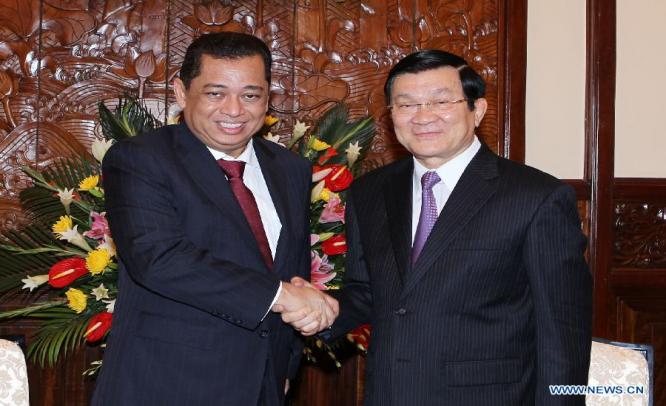Foreign direct investment (FDI) has become more important to Vietnam’s economy, as the government began liberalising the economy.
According to a report from Foreign Investment Agency, (FIA), Vietnam has attracted more than US $ 8.2 billion in FDI Capital, an increase of 17% from the last year. The FDI has shifted largely from the Red River and south eastern regions to the north-central and coastal central region. Japan’s US $ 2.8 billion Nghi Son oil refinery project in Thanh Hoa province and Russia’s U.S. $ 1 billion bus assembly plant project in BinDinh province are some of the projects in central Vietnam. Despite an abysmal record of corporate governance and widespread corruption, Vietnam is able to attract strong Foreign Direct Investment (FDI).
Foreign direct incomes are the net inflows of investment to acquire a lasting management interest in an economy other than that of the investor. It is the sum of equity capital, reinvestment of earnings, long term capital and short term capital.
Vietnam has set a target of 15 billion U.S. dollars from the FDI in 2013 and disburse about 13 billion dollars. In 2012, the country managed to invite foreign investment to the tune of 16.3 billion dollars, an increase of 4.3 percent from the last year and disburse around 10.46 billion dollars. However, economists argue that there is a need to look beyond figures. They noted in many places, authorities have now revoked the licenses of many projects, as investors failed start as committed. Ian Roberts from Blackpeak, a strategic advisory and consultancy firm says corruption is rampant because of an unsurprising shorterism that characterizes many of early middle age entrepreneurs, who have grown up in a challenging and traumatic environment”. He also opines that “Foreign firms should resist the temptation to give into corrupt practices, instead they should retain their reputation by displaying their honesty and integrity, by hiring and rewarding honest local staff” says Roberts, whose firm has done a lot of research in Vietnam. “There is also a huge dearth of domestic capital in Vietnam and the country’s financial sector is undeveloped, so there is limited competition from foreign entrants in several sectors. FDI is imperative for Vietnam for its growth in the longer run. The ministry of planning and provincial authorities is seeking it actively. Some of the notable current projects happening in Vietnam are the Samsung plant in Thai Nguynen province and a $ 2.8 billion investment by a Japanese group in the Thanh Hoa province. Tax incentives are also being provided by the local government in the central regions.
Imminent threats for FDI
Work on the biggest ever foreign investment project in Dong Nai was supposed to begin a year back; however nothing has happened so far. The investor has reportedly withdrawn due to the global downturn in the economy. In another major setback to foreign investors, the departments of planning and investment have reportedly withdrawn around 311 FDI projects. A local newspaper reported that the values of projects that have been shelved amount to nearly $ 4.37 billion. Earlier this month, authorities in the central province of Binh Dinh said they would revoke the license of the $ 125 million Emerald of Vietnam resort, unless the investor, the Russian owned ALT company, fails to present them a detail design of the structure for approval by June 30th. In 2011, a $ 9.8 billion steel project was also cancelled in the central province of Ninh Thuan. Some of the problems for foreign investors in Vietnam are the post licensing checks, transfer price manipulations and also the lackadaisical attitude of the local authorities in clearing site for the investors or grant of incentives as promised. Foreign investors also complain about the regulatory framework, infrastructural issues which are yet to be solved despite being discussed frequently. Experts opine that the authorities need to pay more attention to project assessment and make a rational conclusion about a project’s feasibility. Such internal inflexibilities and procedural rigidities are hampering FDI investment in the country. Countries like Philippines and Indonesia have made significant improvement to their investment environment from the past two years. Other countries in the region Thailand and Malaysia are now the preferred destination for foreign investors.

